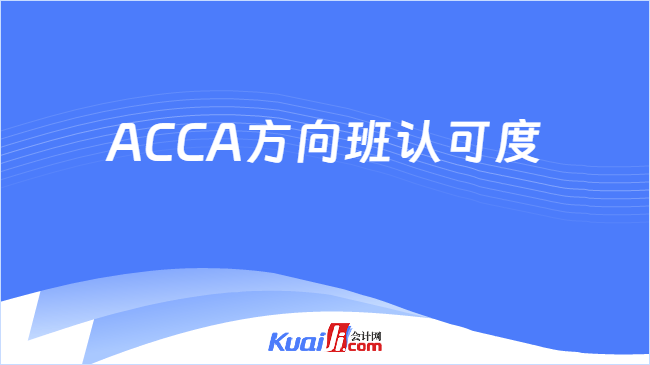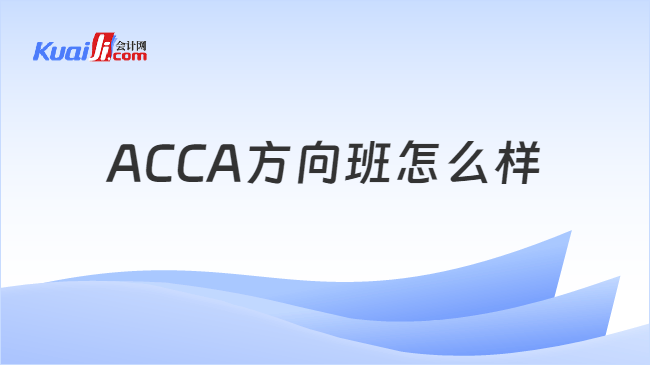ACCA(F3)高频考点解析:合并报表引入
在ACCA考试中,F3阶段中的“合并报表引入”知识点经常都会出现在每年的考卷上,该考点内容也存在着一定难度,今天会计网就帮大家进行梳理,我们来看看吧。

合并:把两个及以上的公司作为一个整体来展示他们的财务状况和经营情况。
原因:母公司通常拥有子公司绝大部分的股票份额,产生了控制权,要整体表现公司状况。
从法律角度讲:母公司和子公司是独立的主体,要做独立的公司报表,而合并报表是将所有的经济交易作为一个整体公司来进行表达。
基本原则:假设P是母公司,S是子公司,P拥有S 80%的股票
1、add together:把相同项相加。P的PPE价值100W,S的PPE价值50W,合并的PPE价值是150W(虽然只拥有80%,但是母公司可以控制子公司所有的资产,所以加100%的子公司的资产切记不是100W+50W*80%=140W)
2、 cancellation of like items internal to the group:内部交易的抵消。假设P公司有应付账款100W ,S 有应收账款50W。P在S赊购10w存货,P报表有欠S应付账款10W,S报表有P10W的应收账款。那么在合并报表中应收账款应该是50W-10W,应付账款应该是100W -10W(本质上商品还是在自己的手中,没有产生转移)
3、owned everything then show the extent to which you do not own everything:母公司像拥有子公司一样去控制子公司。母公司能够完全控制子公司的所有资产和负债的。例如上面的150W的PPE一样。
Subsidiary:子公司
相关的准则:
IAS 27 Separate financial statements *
IAS 28 Investments in associates and joint ventures *
IFRS 3 Business combinations *
IFRS 10 Consolidated financial statements *
相关的概念要牢记,学习,理解以及应用。例如:Control, Power, NCI少数股东权益, Subsidiary, Parent, Group集团公司, Consolidated financial statements合并报表。
投资占比:
Subsidiary:>50%的股票。一般而言control,>50%voting power 超过一半的投票权, power to govern the financial and operating policies 有权力管理公司的日常活动, power to appoint or remove a majority of members of the board of directors 有权任命或移除董事会的大部分成员。
Associates:20%-50%之间的份额,significant influence using the equity method 通常使用权益法进行计算,IAS28 requires 'power to participate', but not to 'control' 有权参与但是无权控制(参与公司的日常活动和财务等决策)董事会里面有代表,Participation in the policy making process 参与方针决策的制定
Trade investments,仅仅是为了分红或者分利润。记录方式:Trade investments are simply shown as investments under non-currentassets in the consolidated statement of financial position of the group.
插播:equity method权益法(联营公司的计量方法)
基本原则:假设A是associate,P是被投资公司。不管P公司是否分配earnings as dividends,A公司总会把P的税后利润加在自己的报表中。P Co achieves this by adding to consolidated profit the group'sshare of A Co's profit after tax.
还有一个值得注意的点:如果联营公司分红之后,收到了现金,那对应的投资就会减少,例如:联营公司初始投资100W,本年属于联营公司的利润是20W,收到了10w的现金,那么在年底的时候associate的投资值是100+20-10=110W(权益法的实质核心)。
注意: 在SPL中,与控制子公司(记>50%的所有科目)不一样,权益法中不记录sales revenue,cost of sales等其他科目,不是一行一行加,而是只记录profit after tax。
Under equity accounting, the associate'ssales revenue, cost of sales and so on are not amalgamated with those of thegroup. Instead, only the group share of the associate's profit after tax isadded to the group profit.
来源:ACCA学习帮




























 沪公网安备
31010902002985号
沪公网安备
31010902002985号 上海市互联网举报中心
上海市互联网举报中心
 中央网信办举报中心
中央网信办举报中心
